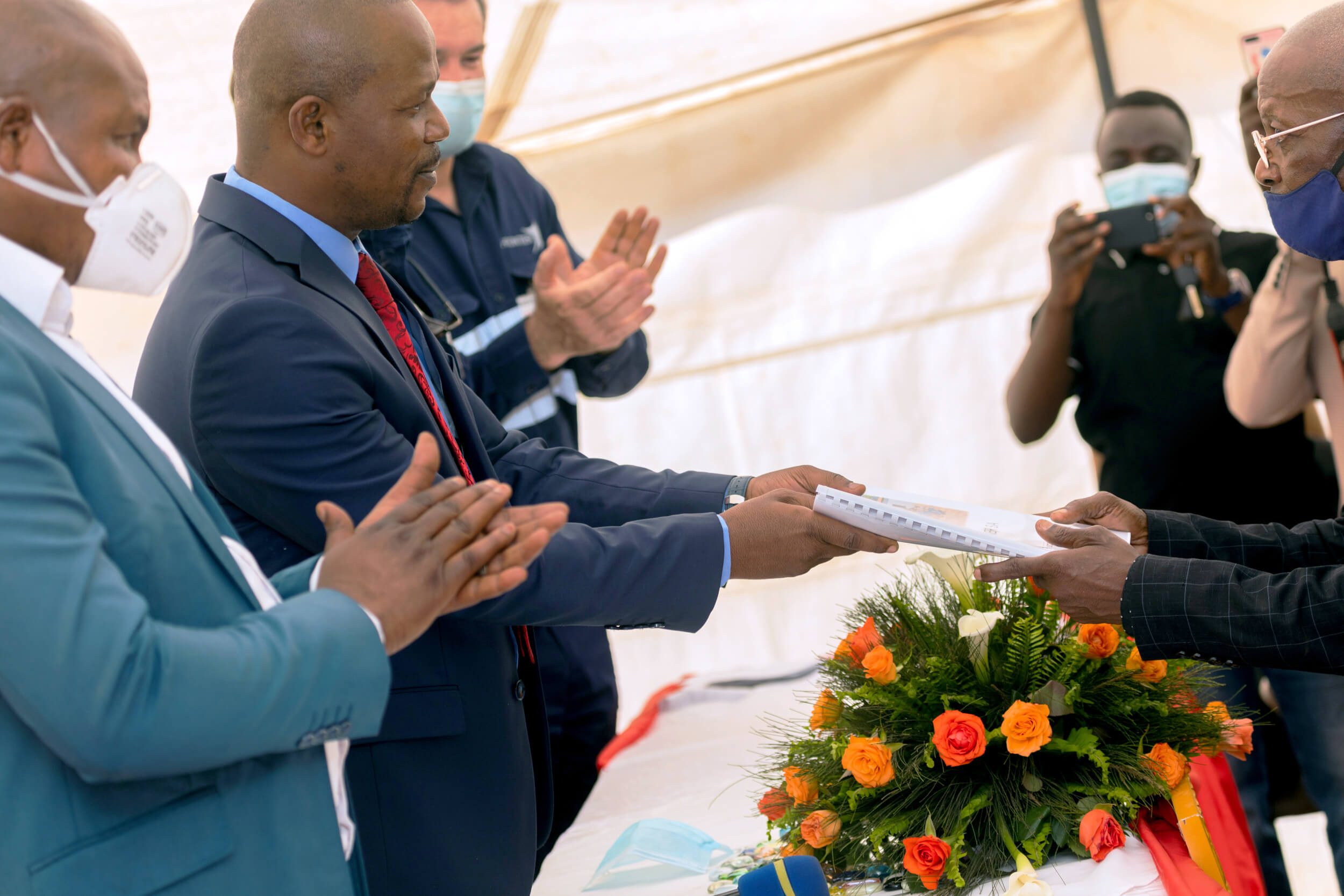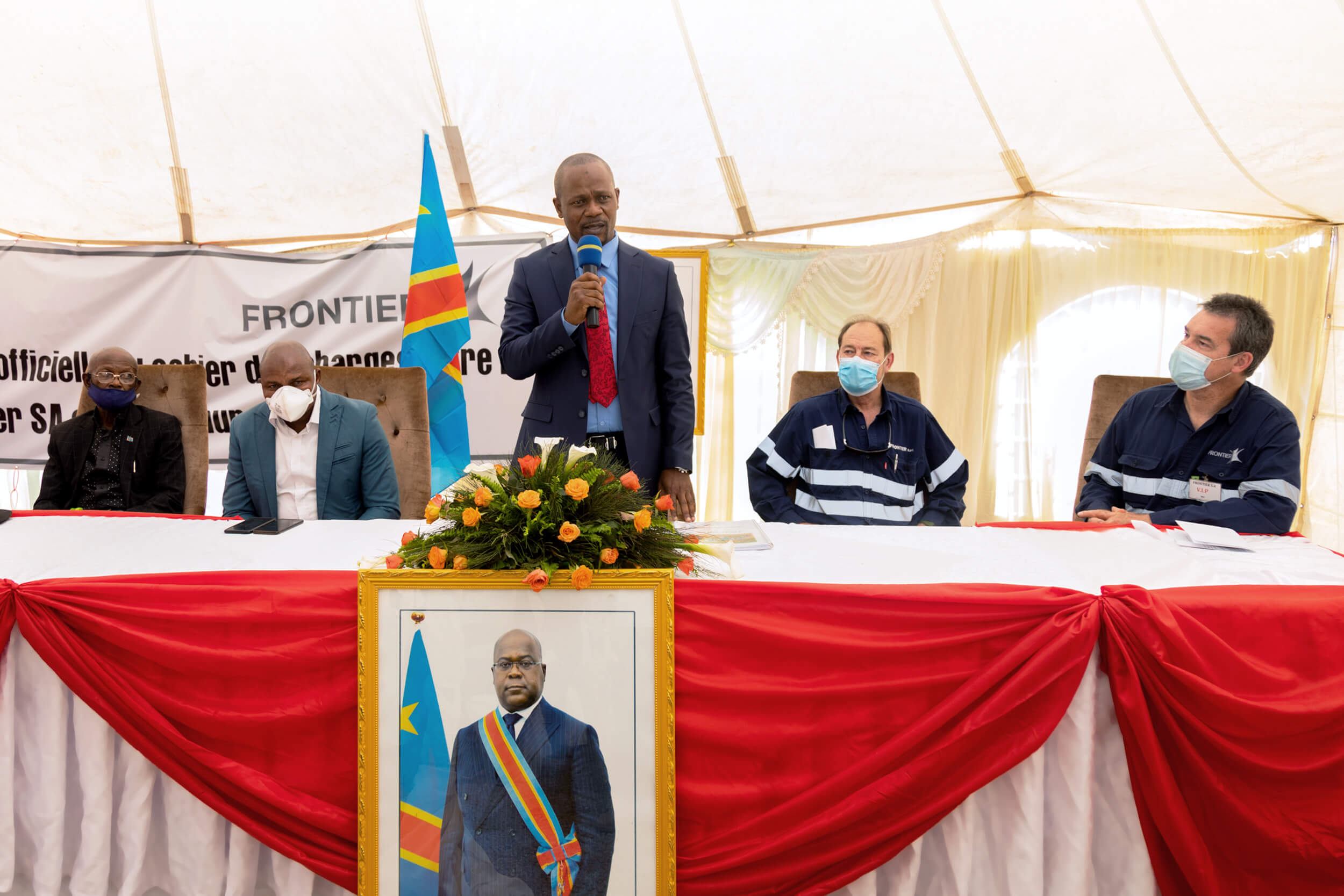 At ERG Africa, essential to building a responsible and sustainable business is positively impacting the communities in which we operate. We believe that successful community development initiatives rely on consultation, participation and transparency.
At ERG Africa, essential to building a responsible and sustainable business is positively impacting the communities in which we operate. We believe that successful community development initiatives rely on consultation, participation and transparency.
In developing its Community Development Plan Agreement (CDPA), the Frontier team engaged in extensive participative dialogues with community members to propose and refine projects that help address community concerns and challenges while ensuring sustainable benefits and collective ownership.
The CDPA, which pledges our support towards local, sustainable development initiatives for the next five years, was signed in a ceremony in September 2021.
The CDPA was signed in Sakania, Haut-Katanga Province, in the Democratic Republic of the Congo (DRC), and was attended by the Provincial Minister of Mines, His Excellency Georges Mawine; the Administrator of the Territory, Mr Yuma Assani Djany; the Chief of Balamba Sector, Mr Kambotwe Kabunda; the President and members of the Local Community Development Committee; and other local dignitaries.
 In terms of the agreement, Frontier will help build on previous and existing development activities that will ultimately benefit around 16,500 households across six communities around Frontier’s operations.
In terms of the agreement, Frontier will help build on previous and existing development activities that will ultimately benefit around 16,500 households across six communities around Frontier’s operations.
Among the key projects is the completion of a large-scale water reticulation system in Sakania that will provide clean domestic water to the town’s residents. Frontier will also assist in the construction of two new schools and supporting healthcare services.
During engagements with the local communities, a need for sustainable food production and economic development was identified, including the diversification from maize as a staple crop to include vegetables, legumes, and poultry farming. Frontier has also agreed to assist in the development of adjacent enterprises and capacity building programmes to support economic development. These inter-woven initiatives are designed to ensure that our host communities can engage effectively and equitably in agricultural markets and value chains, fostering community resilience, food security, economic participation, and improved governance.
